A while back, I was sitting with a group of friends around the campfire discussing the day’s events after practicing outdoor survival skills almost the entire day. The discussion soon shifted towards emergency preparedness, and everyone took turns to share what they had done lately to stay prepared.
One of the new members of our group all of a sudden asked how we would get together after a major disaster. He believes that our small group has better chances of outlasting any disasters if we would come together when the time comes.
Since there are members in our group with various skills, they are socially conscious and act on their knowledge, he said it would be smart to group together. However, I told him that we would probably have no way to get together, at least not all of us.
My answer surprised him, and I had to elaborate that in the event of a disaster where we couldn’t use a car, or we couldn’t get gas or outpace the chaos in the streets, it would be better to stay put wherever we’re living and see how things develop. And this discussion wasn’t about bugging out, since all of us have a bug-out plan, but was more on the “start all over when the dust settles and start together” side.
I told him that it’s better to think globally and act locally if you want to survive in the first weeks of an SHTF event. If you are familiar with my work, you probably know by now that I always encourage people to learn more about their region and to do whatever they can to get to know their neighbors.
This should make sense for preppers because their neighbors will eventually become their families in the aftermath of a major SHTF event. You need to surround yourself with trustworthy people, and even enrolling in local CERT training or being active in the Neighborhood Watch is a good start.
Set realistic expectations
When people think about survival groups, they have all sorts of expectations and get their ideas from movies or TV shows. They want to be part of a group that covers all their needs, and they assume that after finding skilled people, putting together such a group it’s quite easy.
However, the reality of any group of adults in the aftermath of a major disaster will be more like the “Lord of the Flies” situation, and such groups will probably not last.
Also, people seem to forget that your family is the primary survival group you should count on, and you should make sure that each member of your family is strong and healthy but also somewhat self-reliant. Sometimes just involving your family members in various activities within your local community is a good start to get them prepared.
The problems of working together
Now let’s say you do manage to find people sharing the same interest, and somehow you manage to bring them together. How will you hold them together? This is one of the most difficult things to do since groups need to be led, and good leaders are hard to find.
A group might have a natural leader even if you have already appointed an elected leader to lead the flock, and their opinions will clash, leading to the separation of the group. Fractures occur when people cannot get on the same page, and the distinctive character of each individual in the group may become a problem for the leader and the integrity of the group.
Think of it like this: there are lazy people in each team/group, and even if they are part of the same team or want to become part of a certain team, they are often talkers and not doers. Having lazy and idealistic people in a survival group won’t work since their inaction, and unproductive habits will erode the group.
I have a friend living in an expats community in Chile, and he is part of a group of under 30 people. They are an international eco-living community, and even if the community is run democratically, there are always problems.
The community votes on ideas to be implemented for the group’s well-being, and then tasks are assigned based on skills and competencies. However, he often notices that work is hardly ever done for certain tasks, and some members aren’t picking up the slack. Some individuals do work, but others are pushed to follow up on their assignments only when the whole group comes together.
This creates conflicts between the members of the group, and even if they are an idealistic community, some of them get tired of doing everyone else’s work. I believe it is just a matter of time until he leaves this group.
Being ready, willing, and able
Another thing that we have to consider when discussing survival groups is that there are no two people alike in such groups, and everyone has their strengths and weaknesses. Let’s say our group does plan to meet after a major disaster to start anew somewhere else.
For one thing, the ability to put things in motion after such an event requires a certain level of mental preparation, physical fitness, and most importantly, some sort of economic autonomy. To be part of a survival group, you need to be an active and dynamic person involved in regular trying of some sort. Passive knowledge (the inability to act on what you learn) has no room in a group that needs to work and fight together for its survival.
There are many reasons groups don’t stay together, and I bet everyone out there has lost contact with some people that they thought would be part of their lives forever. Imagine having to deal with an end-of-the-world disaster that brings challenges that many folks may not even comprehend.
You cannot experience the “end of the world” by reading about it or by doing various drills that you may think will be required when the world you know ends. The only thing you could do that comes remotely close to that is to move to a country that has been ravaged by war or an unstable political system. If you would live in a country where the economy is in shambles, the infrastructure is almost nonexistent, or when someone tries to rob or kill you on a daily basis, then you would understand what survival is all about. This is out of the question for many, and they forget how good we still have it here in the United States.
We can’t predict the future, and learning new self-reliance skills is the best thing we can do to serve us well in the aftermath of a disaster. Associating ourselves with like-minded people and sharing our knowledge and worries is the next best thing we can do, but remember that there’s no telling if you can depend on that group when the time comes.
Finding like-minded people
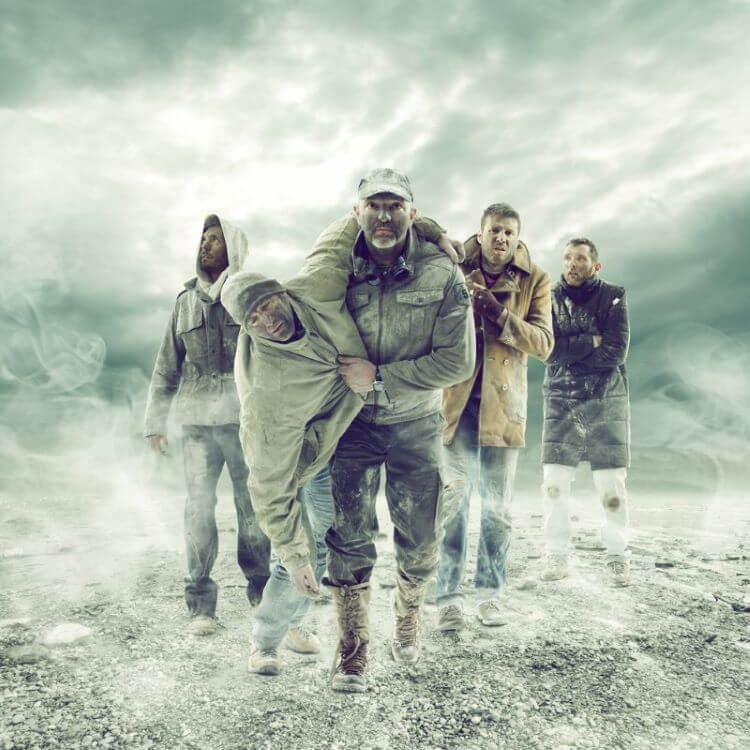
As said previously, your duty is to continually learn and adapt to challenging situations since you want to do well, regardless of whom you will be stuck with when the brown stuff hits the fan. Regarding the “stuck with” part, I believe it’s better to find yourself in the right setting and have people around that can bring something to the table.
Being part of a group preoccupied with certain activities or engaging in events organized by groups united by the same goal is the way to go. Here are a few examples that should help you in your quest to find like-minded people.
The Neighborhood Watch
In the late 1960s, citizens from residential areas organized and took initiatives in crime prevention as the main method to deal with the increasing crime rate in their neighborhoods. It has become a nationwide program starting in the 70s and is one of North America’s best-known concepts of crime prevention.
Since there is no formal way to start a Neighborhood Watch group, you will need to go door to door and talk to your neighbors within a given area to start a group. The group you start needs to get together on a regular basis, and you need to establish who gets included and how they can help.
Even a simple step like drawing a map of the neighborhood and writing the name and phone of those who want to get included is a good start. Let’s say someone does notice something unusual, then just by having that map at hand, they will be able to know whom to call.
Add other important phone numbers on the map like the ones of the police and fire departments, the local councilman, and any other phone numbers of key contacts from your area. To find out more about how such groups work and how to organize one, you can visit NNW.org
CERT
The Community Emergency Response Team (CERT) is an initiative designed and superficially structured so that the local and state program managers have the flexibility to form programs that would serve their communities.
CERT volunteers are trained to respond to various emergency situations in their communities, but they can also assist with other non-emergency events. This program trains volunteers to prepare for various types of disasters that their community may be subjected to. If your area is prone to floods, CERT volunteers will be trained to assist the vulnerable, aid with evacuation, and so on.
Not only do they learn how to safely respond to disasters (natural or man-made), but they also promote preparedness by participating in various community events. I recommend attending classes organized by your local CER program since you will always find something new to learn and will certainly meet like-minded people.
Neighborhood Community Gardens
In certain urban areas, community gardens are popping up, and they are becoming more and more popular. These local gardens bring together people driven by the desire to improve a plot of land and grow their own local food. These people are concerned about self-sufficiency and self-reliance and could be good candidates for a survival group.
Even if you may not need to use that plot to grow your own food, it’s always a good idea to attend the public events they are hosting so that you get to meet the people involved and perhaps learn something new.
Gun Clubs
Firearms will come into play in just about any serious disaster scenario we can think of since these tools are part of our lives. Just about every city has a gun club and a firing range with people teaching firearm classes.
Visit some of these places and see what classes are held and what kind of topics are taught. Even if you have a lot of experience with firearms, there’s always something you can learn from taking a class. Join the local gun club and get to know the people. Sometimes, these gun clubs often range discounts and other benefits as well, besides providing you with the opportunity to meet like-minded people.
Camping and outdoors groups
I love being part of various outdoor groups because they can provide camping and backpacking teaching and organize outdoor trips in various regions. These socially based groups allow you to meet other people in your area who share the same interests.
While some of these groups won’t have prepper or survivalist members, they do provide you with great opportunities to discover your area and learn new things from more experienced outdoor enthusiasts.
Concluding
Now that you know where to find like-minded people to start your own survival group or become part of an established group, it’s time for you to put in some effort to know the people in those groups. Bonding and creating relationships is perhaps the hardest thing to do since life is very dynamic, and you need to be willing to give everyone a chance.
Keep an open mind regardless of whom you interact with, and who knows; maybe you will find another survival “family”. One that will probably be there for you when things go south.


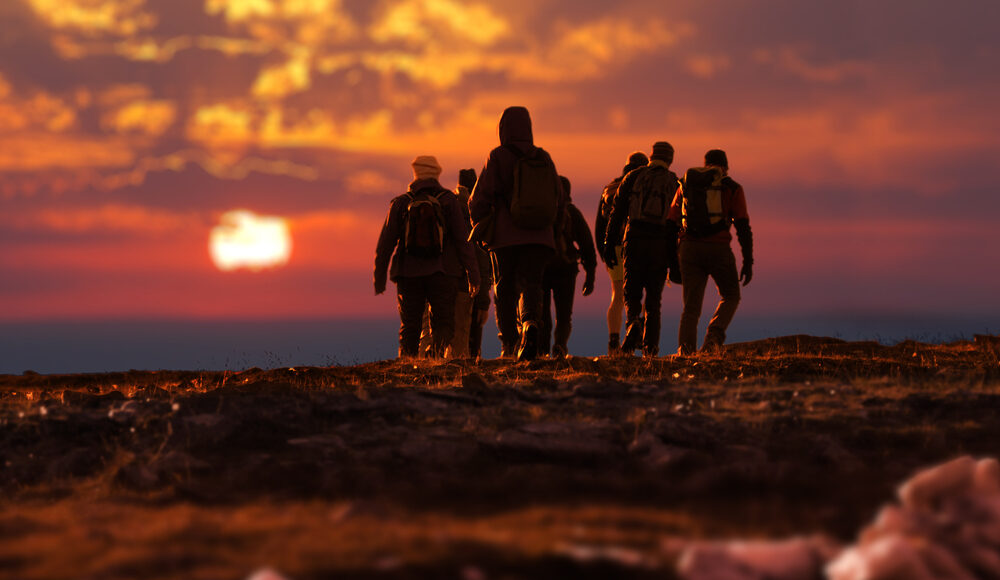


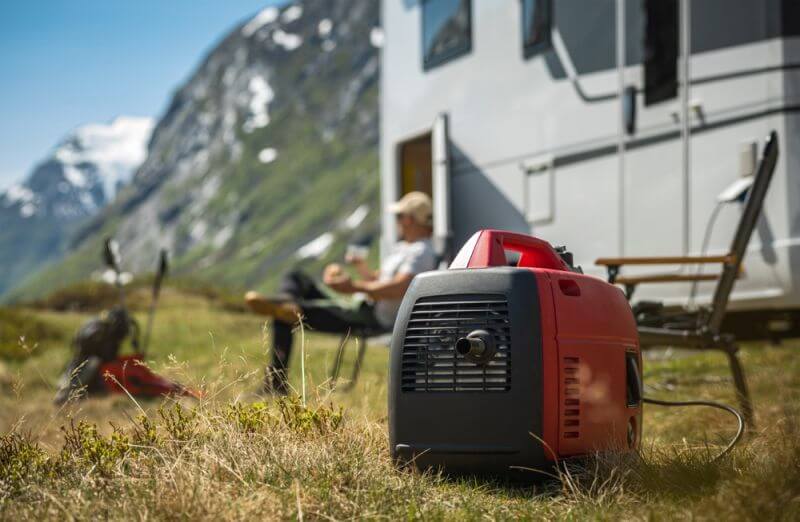

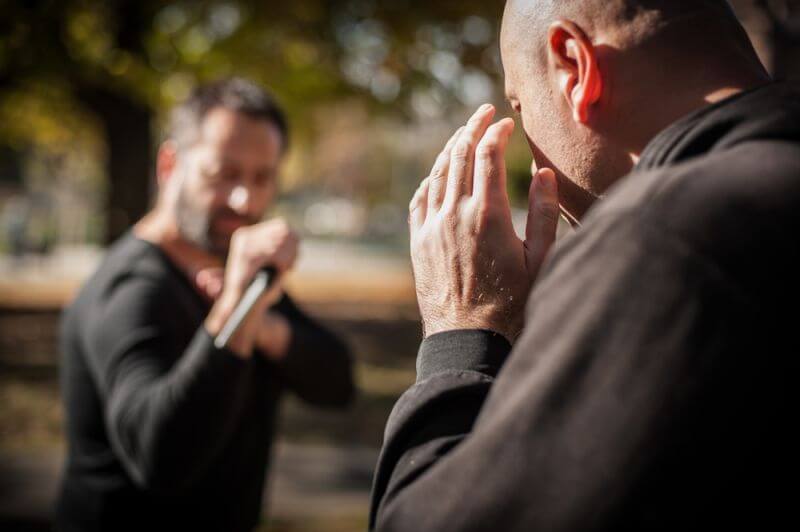
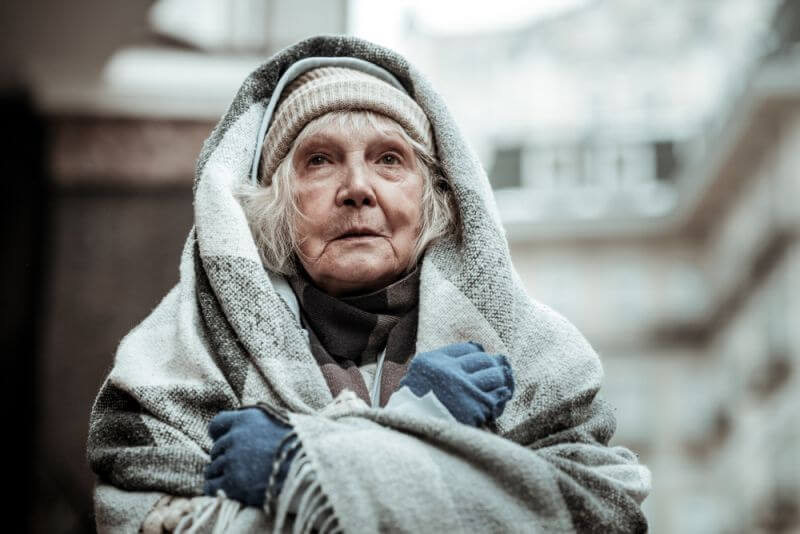


Travelin | August 15, 2022
|
Wonderful ideas and suggestions! Thank you for the article.
Point1) Be careful about the group you choose to get involved in to find people of “like mind”. The challenge could be to find some of these groups mentioned that are supported by the “entity” who has “charge” of instructing or training people. As an example, when I was living in southern CA, there is a little city just north of San Diego who had a woman who was trying to get a group together and be trained as CERT people. The CERT instructor was a fireman from the local fire department. He was so anti the CERT program there was no trust people could put in anything he said. He didn’t want CERT people, didn’t hide that fact, and that was about all anyone could trust that he said. It was a very clear signal that not only are the agencies who are supposed to be in control of certain aspects, such as fires and evacuations, required by the fire, etc., not competent their advice, it can be absolutely horrible to take. People had to have more sense than to do what they were instructed to do. That became very evident the following year when we had some pretty severe fires in the area and roads all over were closed. People were being evacuated from their homes/property and they were told to travel roads that had already been closed to get to evacuation sites. The people monitoring the closed roads let no one pass (logically) and had no ideas to give people who needed to evacuate as to how to get there, nor did they care. The disorganization and disinterest in the agencies who were supposed to be “expert” in the area were some of the most inept and incompetent. As has so often been advocated in Survivopedia articles, the government and associated agencies are NOT here to help and trusting them could easily become one’s death sentence.
Point 2) I like the reality Bob provides in this article about the “groups”, the main group needs to be one’s immediate family and surviving the initial disaster is the critical part and then possibly with the help of others beyond the initial family one can start over again with others of the same mind when the aftermath of the disaster has settled down and it is appropriate to restart.
Point 3) There also needs to be a lot of honesty provided as one considers their “family” especially if you are not living with them, as to who is going to be an asset or a burden, and those people who won’t be an asset can’t be allowed to be part of the “family group” one depends on as they will always drag everyone else down. They will want and want and want, demand others do, try to be the “leader” as they believe if they are they don’t have to DO anything but boss while they do nothing but talk without any action. A true leader is one others can safely follow what they do. As Bob mentions, talkers are useless, doers are required or the group won’t stay together.
Point 4) As such, as a single person household, and what the medical world and others would consider a “limited” if not “disabled” household, I’ve done all I can to prepare under the circumstances in which I live and the health situations I need to live with. The main point here is to encourage those who are “limited” or “disabled” that you can easily become prepared, and MUCH more inexpensively than some of the suggestions made by the experts. You are your best supporter to provide for what you personally need to be able to survive and thrive through and beyond a disaster. Your own lack of cognitive thinking abilities to figure out ways to do what you need to do are your major disadvantage. Don’t give in to wanting someone else to find your solution, figure out your own. You know your body best and know what you can and cannot do, what would work for you and what won’t. Find your own solutions and don’t be limited by the standardized training being given to active able bodied people. Under their rules you’d die, you’d fail, and they’d be glad to see you gone, a cleansing of the gene pool. There are some neighbors locally who have come to the conclusion that I would never be an asset to their survival or restarting after a disaster. I can understand that, were I “normal” and able bodied as they are, I would probably think the same of someone in my condition. I can’t shoot a gun or arrow, use a sling or any other type of weapon with any accuracy at all and therefore such items are of absolutely no use to my survival. Has that ended my ability to provide myself with meat if needed? Not a bit. There are other methods that are readily available that don’t require the need for straight pointing or aiming. I find it interesting that when there is no water the people who have declared me as a detriment to their group are the ones making panic runs to the store to try and stock up on water. When the store has no more water and theirs is gone, they’re really in a panic and in distress. I never have to leave home and the gathering of clean water is quick and easy with more than enough water to water containered plants, to drink, cook, clean, flush toilets, etc. (Believe me, watering containered plants occurs during the dark hours of the night. I’m not about to advertise to any neighbor I’ve got water to water plants). When there is no power the folks who have decided I’d be a detriment to their survival situation are the first to panic while I’m enjoying all the electricity I need. Yes, it’s wise to keep one’s mouth shut and the obvious fact that I have food, water and power for all my needs quiet. We’ve had times when due to flooding we’ve been totally marooned and no trucks can get through to support or restock the stores. Sure isn’t long before there’s nothing left in the stores. When such things happen the last place I care to be is the store amongst the mob masses trying to clean the stores out. Yet I’ve never yet considered that I’ve ever felt like I was desperate for anything, food, water, shelter or power. While others who like to talk and broadcast what they have, have lost a lot of items to thieves, and thanks to the fact of having health challenges, I’m not considered one to have any sort of preparations or abilities to take care of myself in a disaster, it has saved me from a lot of the looting/stealing others have suffered. There can be a real blessing in having some physical ailments and a closed mouth. Your survival chances as a “limited” or “disabled” person are going to depend on you because the able bodied people are not going to want you in their group. There are ways to have plenty of water, right out of the air, even in desert climates, that don’t require water storage facilities and will provide all the water you need in a given day. Make good choices about the kind of potted containers you get, kinds that save water and catch water runoff with wonderful nutrients in them. You can water your plants again with the collected water that has drained off from watering your plants. I have had to come up with a lot of these methods I use for safe water collection & filtration, having all the power I need, ways and means to grow my own vegetables/fruits, on my own because they sure aren’t what is discussed as ways to survive by the “professional” trainers training able bodied people with no mobility problems,, but my ways do wonderfully for me as I experience mobility and motor control problems following the removal of a large brain tumor. They are things I can physically do and accomplish with my limitations and the institution of them quietly into my life has left me needing for nothing during any “disaster” I’ve yet been part of, including the most efficient global pandemic panic mastered by world wide governments, “medical” personnel and the media. When I’ve been asked by people who don’t want me as part of their group how I’m doing when they and others are in dire straits, I simply tell them, “I’m still here and am thankful.” I don’t have the ability to take care of their needs, and once again, silence is the better part of valor. To say more would be idiocy on my part. For those who would fit into the “limited” or “disability” category, don’t let the standardized teaching for able bodied people stop you from coming up with your own ways to survive and thrive. You will actually find a lot of the able bodied people who claim they are “prepared” joining in, to some degree, with those in full panic after a “disaster” hits. You won’t even notice it because your solutions will be tailor made to your particular situation to help you survive and thrive through that time. The most you might have to do is restock some of the food items you have used during the disaster time once the disaster is ended and things get back to a more normal manner of hoped for life for others. A caveat here is that in the United States we’ve not been a war torn country last century or this century and I honestly have no idea how I might survive in that type of situation. It is true in general, the strongest survive, the weak perish. Don’t be conned into believing strength is only physical, strength can be emotional and strong cognitive abilities to find ways to survive and thrive regardless of the physical strength.
Shya | August 18, 2022
|
Travelin, your reply to the article was longer than the article itself, and boy you said a mouthful! Thanks very much for doing so, you made a lot of sense, and it was enormously enjoyable. I truly hope the best for you and am proud a person such as you are still “here and thankful “ as you put it.
Wouldn’t I love a neighbor like you,,,,, big thumbs up and blessings.
Pan | August 28, 2022
|
Thank you, Travlin. Great comment.
I personally believe too many people who join a group are there primarily to discover who they can scrounge from in an emergency.